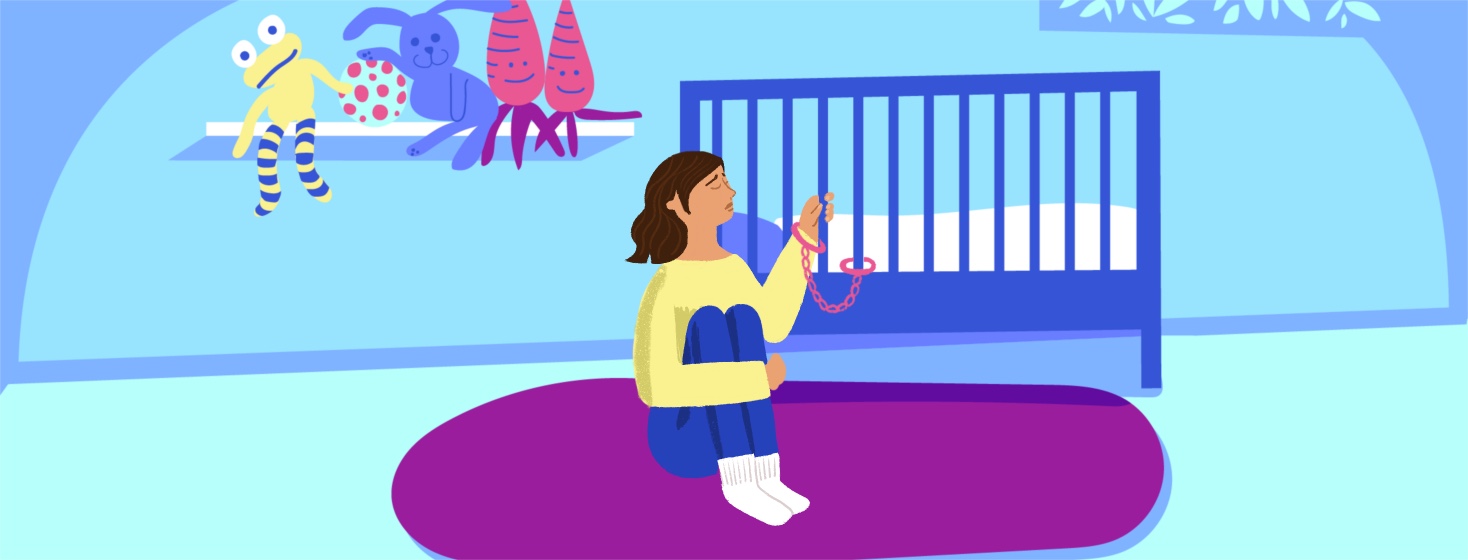Loneliness, Isolation, and Postpartum Depression
The arrival of a new baby is often described as a time of joy and celebration. But for many new mothers, this time can also bring feelings of loneliness and isolation. These negative feelings may increase the risk of getting postpartum depression (PPD).1,2
PPD is not uncommon. It impacts about 1 in 5 mothers in the first 3 months after giving birth. Research shows a strong link exists between loneliness and PPD for new mothers.1,2
How does the time period after childbirth lead to feelings of loneliness and isolation?
We often think being lonely means not being around any people. This may seem the opposite of what is expected of new parents. This is because mothers may spend time with:3,4
- Their babies
- Their partners
- Other family members
But some factors can lead to loneliness for mothers, such as:3,4
- Fear of judgment, making them hesitant to reach out to other mothers and parents
- A feeling of being confined to the home
- A feeling of being unsupported by their partners or community
- Changes in relationships with their partners
- Loss of identity from lifestyle changes like time off work or having less free time
- A feeling of being removed from pre-baby connections, such as work colleagues or friends without kids
The risk for loneliness can be higher for mothers from disadvantaged communities. This may be caused by higher stigma and less social support.4
How do loneliness and isolation contribute to PPD?
A negative feedback loop may exist between loneliness and PPD. Feeling lonely and isolated can be a trigger for developing PPD. Having PPD can then, in turn, increase feelings of loneliness. The side effects of depression can also commonly lead to isolation. These might include:3-4
- Loss of interest in activities
- Unwillingness to leave the house
- Unwillingness to socialize
- A feeling of being too tired or unmotivated to make positive changes
It can be hard for parents to escape this negative loop. But research indicates there are ways to prevent or break this pattern.1-3
How to manage feelings of loneliness and isolation
Research shows having a support system is the most important factor in managing feelings of loneliness. This might look different for everyone. A support system could include your:1-3
- Partner
- Family
- Friends
Explaining these feelings to kind, understanding people helps manage them.1-3
Taking time for yourself can also help. Your support system may be able to help with childcare so you can spend some time on yourself. Putting yourself first, even for a short time, can help a lot. For example, you might plan a kid-free meet-up with a friend.2,4
Some mothers feel ashamed of the stigma linked with these feelings. They do not want to be seen as a “bad mother.” This shame can prevent them from reaching out for help when needed. It can be helpful to realize that these feelings are not at all uncommon. About one-third of all of the people in studies said they felt lonely after having children.2,3
Negative feelings are normal, and you do not have to suffer alone. If you are feeling depressed, lonely, or isolated, try to talk to someone. This person could be a:3
- Doctor
- Counselor
- Friend
- Family member
Reaching out for help may be the first step to feeling less alone.3
